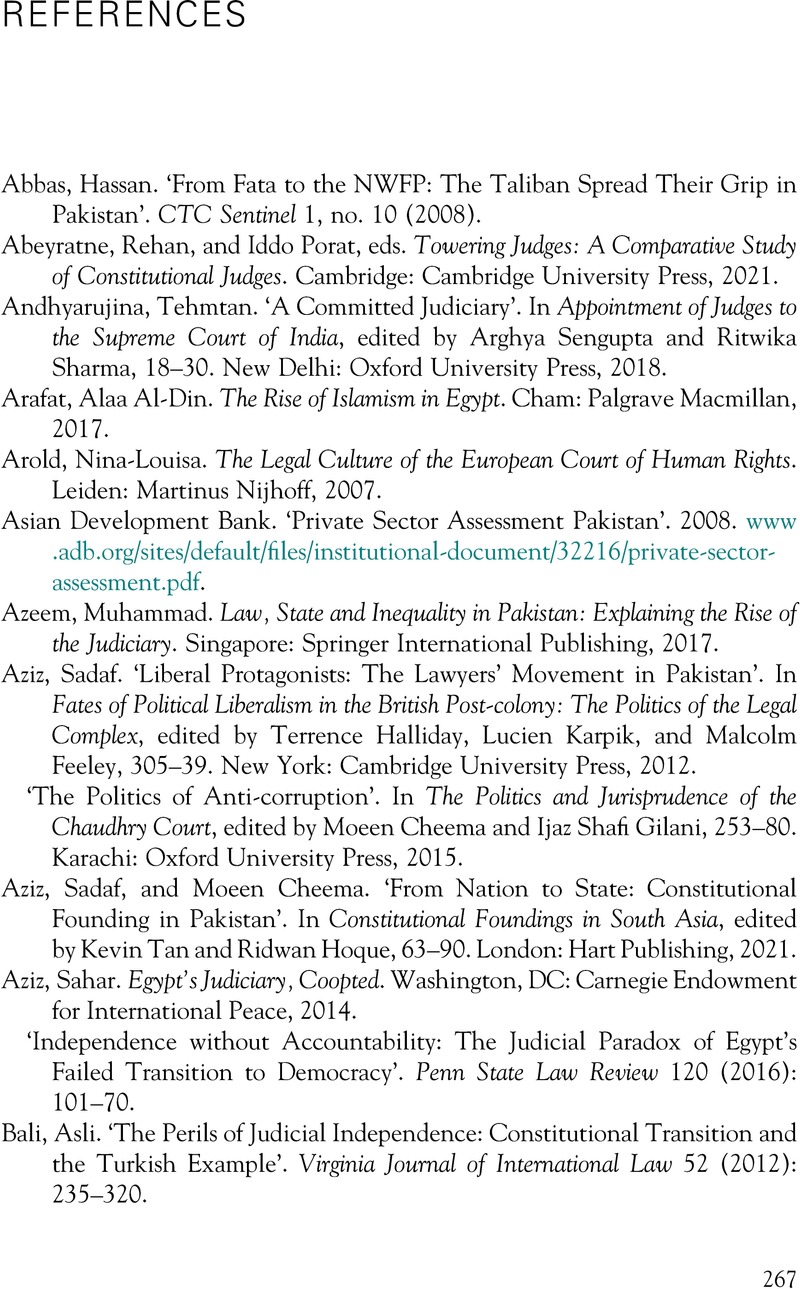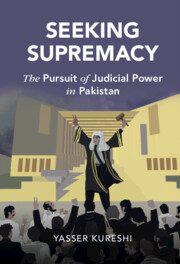Book contents
- Seeking Supremacy
- Cambridge Studies in Law and Society
- Seeking Supremacy
- Copyright page
- Dedication
- Contents
- Figures
- Tables
- Acknowledgements
- Introduction
- Chapter One The Judiciary, Rule of Law and the Military
- Chapter Two The Loyal Court (1947–1977)
- Chapter Three The Controlled Court (1977–1999, Part 1)
- Chapter Four Between the Barracks and the Bar (1977–1999, Part 2)
- Chapter Five The Confrontational Court (1999–2017)
- Chapter Six Epilogue
- Chapter Seven Conclusion and Comparative Perspectives
- Appendix: Structure of the Pakistani Judiciary
- References
- Index
- Cambridge Studies in Law and Society
- References
References
Published online by Cambridge University Press: 08 September 2022
- Seeking Supremacy
- Cambridge Studies in Law and Society
- Seeking Supremacy
- Copyright page
- Dedication
- Contents
- Figures
- Tables
- Acknowledgements
- Introduction
- Chapter One The Judiciary, Rule of Law and the Military
- Chapter Two The Loyal Court (1947–1977)
- Chapter Three The Controlled Court (1977–1999, Part 1)
- Chapter Four Between the Barracks and the Bar (1977–1999, Part 2)
- Chapter Five The Confrontational Court (1999–2017)
- Chapter Six Epilogue
- Chapter Seven Conclusion and Comparative Perspectives
- Appendix: Structure of the Pakistani Judiciary
- References
- Index
- Cambridge Studies in Law and Society
- References
Summary

- Type
- Chapter
- Information
- Seeking SupremacyThe Pursuit of Judicial Power in Pakistan, pp. 267 - 279Publisher: Cambridge University PressPrint publication year: 2022

